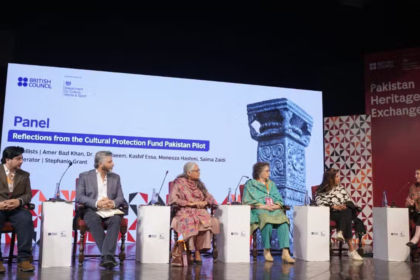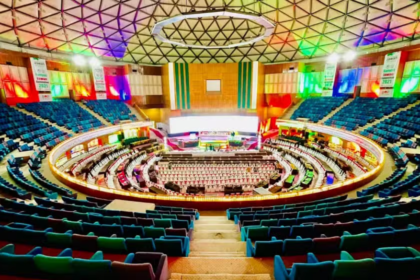Breeders of the black partridge have urged the Punjab government to reinstate the suspended licensing system for keeping the birds. The demand was raised during a protest held in Muzaffargarh, where o...
The British Council convened the Pakistan Heritage Exchange in Lahore to mark ten years of the Cultural Protection Fund. The two-day capacity-building and knowledge-sharing programme was held at Alham...
The United Arab Emirates has officially announced the rates for Zakat Al Fitr (Fitrana), Fidyah, and other Ramadan-related expiations for the year 2026. The announcement was made by the UAE Fatwa Coun...
Laam Fashion Week Day 2 unfolded as a confident statement of Pakistan’s fashion evolution, bringing together accessibility, heritage, craftsmanship and global ambition on a single platform. As Pakista...
The federal government is planning to establish a dedicated University Town in Islamabad, a large-scale initiative aimed at transforming the capital into a regional hub for higher education and resear...
The federal government has reportedly finalized a site for Islamabad’s upcoming Convention, Expo, and Exhibition Centre, a major infrastructure project aimed at supporting the city’s role as host of t...
As 2025 comes to a close, cities across the world are preparing to welcome 2026 with grand celebrations. From Auckland to New York, major destinations are set to ring in the New Year with fireworks, l...
Pakistani actress Sonya Hussyn has achieved a significant international milestone after being honoured in Russia for her contribution to arts and culture and for representing Pakistan on a global plat...
ArticleMost theatres across Greece remained closed on Saturday as actors launched a strike during one of the busiest periods of the cultural calendar. The walkout marked the second strike by performer...
Hollywood’s biggest stars once again transformed Christmas into a worldwide digital celebration, filling social media feeds with moments of glamour, warmth, generosity, and personal milestones. From l...









